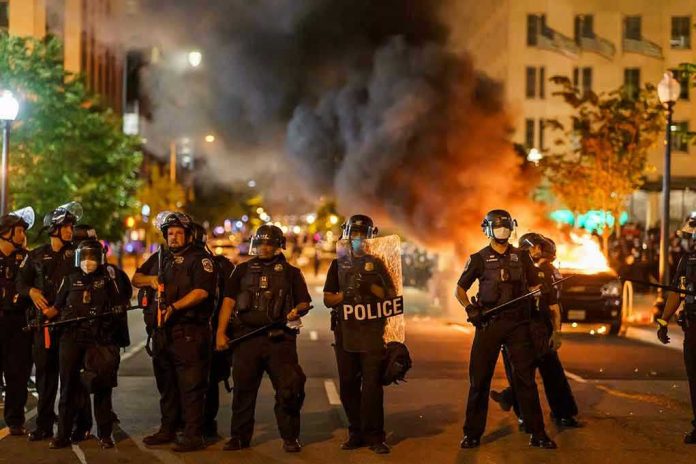
Madagascar’s military seizes power, sidelining democracy and raising fears of authoritarian rule.
Story Highlights
- Madagascar’s military takes control after a parliamentary vote to oust President Rajoelina.
- President Rajoelina flees the country, leaving a power vacuum.
- The military’s move raises concerns about the return of authoritarian governance.
- International observers worry about the implications for democracy in Africa.
Military Seizes Power in Madagascar
Madagascar’s military announced its control over the nation following a parliamentary vote to remove President Andry Rajoelina. This power shift marks a significant deterioration of the political landscape in Madagascar, a country already marred by a history of coups and unstable governance. The military’s intervention has suspended civilian governance, creating a constitutional crisis and sparking fears of a return to authoritarian rule.
The ousting of President Rajoelina was triggered by growing dissatisfaction within the Malagasy parliament and public. Economic stagnation and governance failures were cited as key reasons for the parliamentary vote against Rajoelina, a former disc jockey who initially rose to power via a military-backed coup in 2009. His presidency has been fraught with accusations of authoritarianism, making the current military takeover a continuation of a disturbing pattern of instability in the nation’s leadership.
International Concerns and Reactions
The international community, including the African Union and the United Nations, has expressed concern over the military’s actions. There is heightened global scrutiny over democratic backsliding and military interventions in Africa, and Madagascar’s situation has added to these worries. International actors are apprehensive about the potential long-term effects on democratic norms and regional stability.
COUP D'ÈTAT | 🇲🇬 | The military has taken over in Madagascar after weeks of protests calling for the President to immediately resign. The country's President has fled according to the reports.
Madagascar has seen months of power and water cuts, declining economy and poor… pic.twitter.com/KawG7Z11P8
— Evaluator. (@_AfricanSoil) October 12, 2025
Despite these concerns, the military has yet to announce any plans for returning to civilian rule or forming a transitional government. The absence of clear communication has left the populace in uncertainty, with the potential for unrest looming as the situation remains fluid and unpredictable.
Potential Impacts on Madagascar
Madagascar’s military takeover could have profound implications for its economy and society. The political instability threatens to disrupt trade, aid, and investment, exacerbating the economic hardships faced by one of the world’s poorest countries. Socially, the erosion of civil liberties and potential crackdowns on dissent could strain the already fragile social services.
The military’s assumption of power also risks further weakening Madagascar’s democratic institutions, with potential for prolonged authoritarianism. The uncertainty surrounding the nation’s political future could lead to international isolation or sanctions, impacting not just the political class but also the general population and key economic sectors like tourism and agriculture.
Sources:
Madagascar Army Seizes Power After President Rajoelina Flees Country



